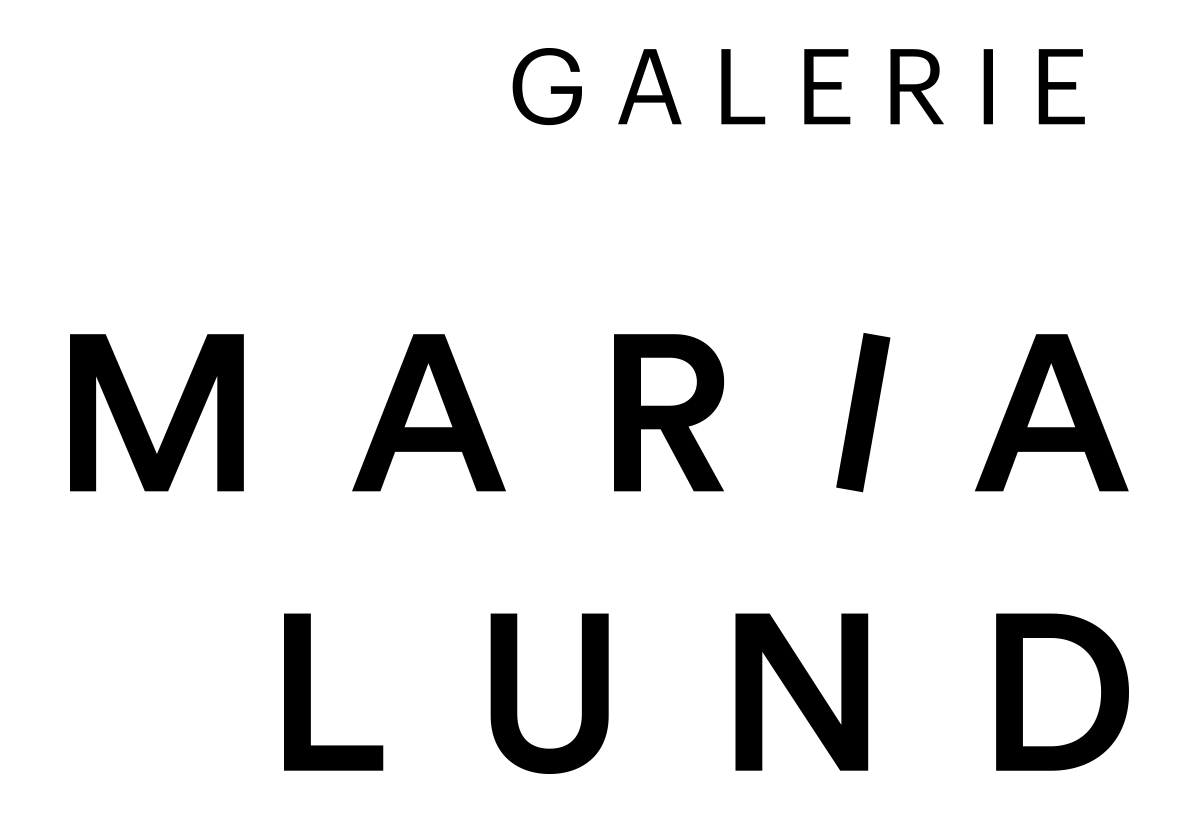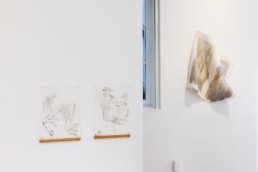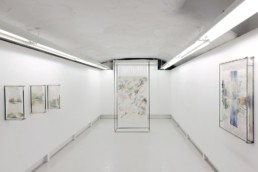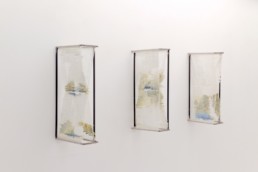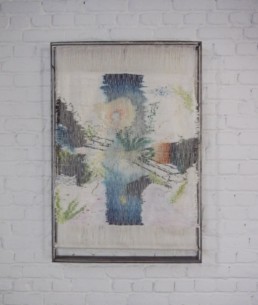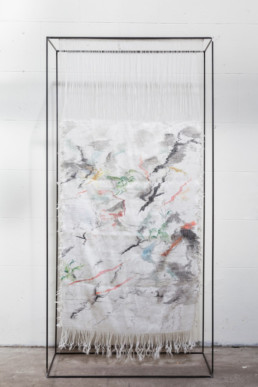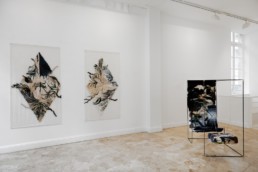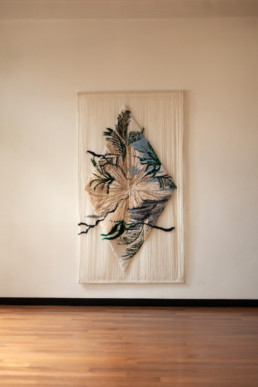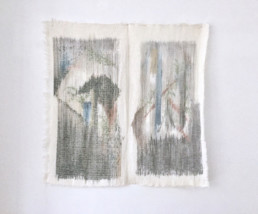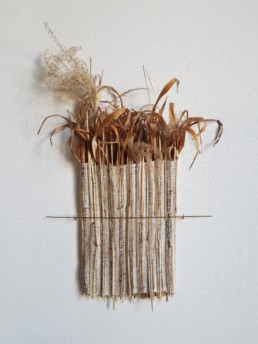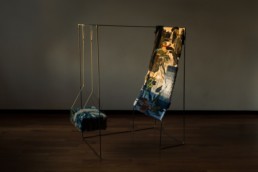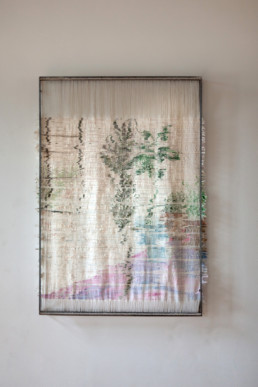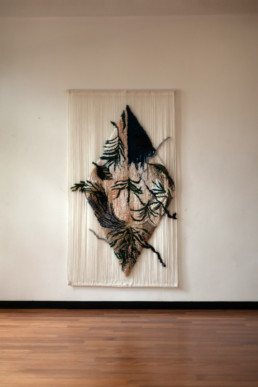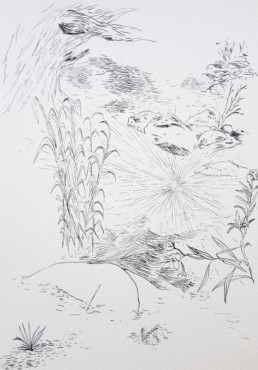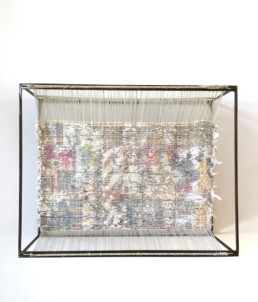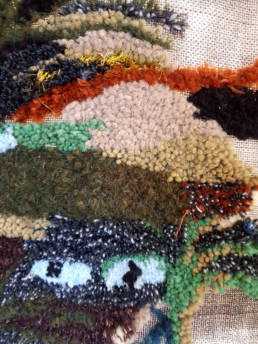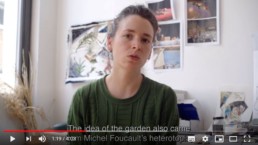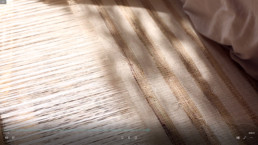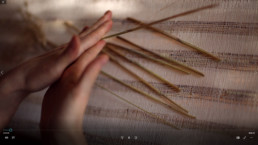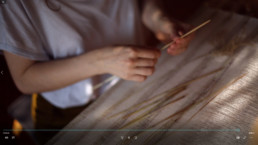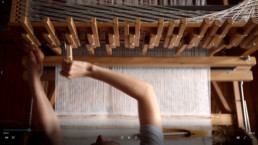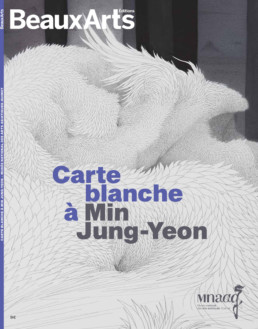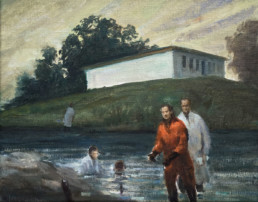Proche du soleil
Presentation
Following one right after the other, Galerie Maria Lund is hosting the shows of two young women artists whose creative explorations respectively imply textile and ceramics.
Close to the sun (Proche du soleil), a solo exhibition of French artist Elise Peroi (11.09-10.10.2020), will be followed by another solo show – rv in the open air (rv à l’air libre) – dedicated to Danish artist Pernille Pontoppidan Pedersen (16.10-28.11.2020). Both in their early thirties, the two artists innovate with power and poetry.
Elise Peroi transcends weaving to aspire to a form of total art that includes performance. As for Pernille Pontoppidan Pedersen, she sculpts with a creative audacity where the primitive and the sophisticated combine.
Weaving takes shape in the same way soil is cultivated, through thorough tilling, furrow after furrow. Its symbolism has been at the foundations of many mythologies: most often to evoke the fragile life thread held in the fatal hand of some divinity. For Elise Peroi, the metaphorical dimension of such a practice is as important as the material creation. Bringing a woven artwork to existence is a whole; the body of the artist blends in the process. The matter spreads in space as the breath animates its light structure or through the art of performance, which the artist also practices. Nature is one of her favored subject matters and its materials are often directly integrated in her works.
Elise Peroi has been deeply influenced by the works of landscaper Gilles Clément regarding cooperating with nature (Do as much as possible “with” and as little as possible “against”). She is equally interested in the thoughts of Michel Foucault on Heterotopia, these other places and lands, where dreams, fantasies and transitional states can thrive. The garden – paradise created par Mankind – is one of those unique places. It inspired Persian carpets – each carpet becoming a little mobile world of its own – that have in turn been the starting point of the artist’s recent work.
The sun, vital force, lies at the heart of many artworks by Elise Peroi. It is treated as a subject matter in itself, lights and greenery beam from the palpitating center of a lozenge – or through the myth of Icarus, who was betrayed by his wax wings when, exhilarated by his flight, he came to close to the celestial body… The artist has approached the myth under a playful angle, first imagining Icarus launching from a skateboard ramp; she finally went for the swing, which enables to approach the sun as it goes up (that thrilling sensation from childhood), quickly followed by going down where dream encounters humility.
The imaginary and narration are very present here, as in the rest of Elise Peroi’s work. Faced with these surfaces with multiple parcels, the viewer, in turn, develops his/her own narration.
Agenda
Opening reception
Elise Peroi - Proche du soleil
Thursday, September 10thUntil 8.30 pmGalerie Maria Lund
Exceptional opening
Un dimanche à la galerie
Sunday, September 13rd1-7 pmGalerie Maria Lund
Press
Dossier de presse Carte blanche à Min Jung-Yeon
Novembre 2019Musée national des arts asiatiques - Guimet
Peter Martensen "ravage " l'entendement Libre Belgique - Arts Libre
23 Août 2017Semaine du 23 au 29 Août 2017Roger-Pierre Turine
Vous avez dit "Complot" ?Dossier Le Monde diplomatique
Juin 2015N°735Dossier illustré par Peter Martensen
Publications and texts
Carte blanche à Min Jung-Yeon
Musée Guimet
Beaux Arts Éditions
Novembre 2019
Le musée Guimet donne carte blanche à l’artiste coréenne Min Jung-Yeon. Installée dans la rotonde du musée, l’œuvre immersive Tissage, s’appuie sur la réalité tragique de cette Corée scindée en deux depuis maintenant 65 ans, ainsi que sur les théories du philosophe Lao-Tseu et du physicien quantique Carlo Rovelli. Beaux Arts Éditions se fait l’écho de cette carte blanche et revient sur cette installation qui se transforme, se mue et change au gré des déambulations des spectateurs.
Titre
Dates
Contrairement à une opinion répandue, le Lorem Ipsum n’est pas simplement du texte aléatoire. Il trouve ses racines dans une oeuvre de la littérature latine classique datant de 45 av. J.-C.,
